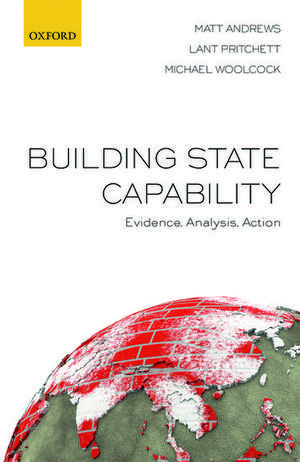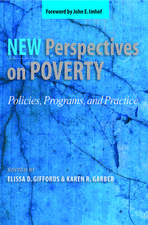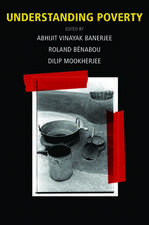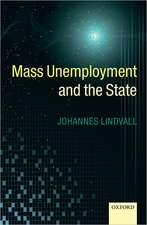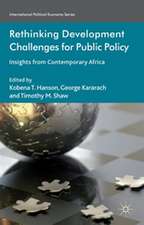Building State Capability: Evidence, Analysis, Action
Autor Matt Andrews, Lant Pritchett, Michael Woolcocken Limba Engleză Hardback – 25 ian 2017
| Toate formatele și edițiile | Preț | Express |
|---|---|---|
| Paperback (1) | 277.59 lei 22-36 zile | |
| OUP OXFORD – 5 dec 2019 | 277.59 lei 22-36 zile | |
| Hardback (1) | 468.64 lei 31-37 zile | |
| OUP OXFORD – 25 ian 2017 | 468.64 lei 31-37 zile |
Preț: 468.64 lei
Preț vechi: 519.76 lei
-10% Nou
Puncte Express: 703
Preț estimativ în valută:
89.68€ • 93.06$ • 74.96£
89.68€ • 93.06$ • 74.96£
Carte tipărită la comandă
Livrare economică 05-11 martie
Preluare comenzi: 021 569.72.76
Specificații
ISBN-13: 9780198747482
ISBN-10: 0198747489
Pagini: 276
Ilustrații: 27 Figures, 25 Tables, 6 Boxes
Dimensiuni: 175 x 240 x 23 mm
Greutate: 0.55 kg
Editura: OUP OXFORD
Colecția OUP Oxford
Locul publicării:Oxford, United Kingdom
ISBN-10: 0198747489
Pagini: 276
Ilustrații: 27 Figures, 25 Tables, 6 Boxes
Dimensiuni: 175 x 240 x 23 mm
Greutate: 0.55 kg
Editura: OUP OXFORD
Colecția OUP Oxford
Locul publicării:Oxford, United Kingdom
Recenzii
Building State Capability provides anyone interested in promoting development with practical advice on how to proceed--not by copying imported theoretical models, but through an iterative learning process that takes into account the messy reality of the society in question. The authors draw on their collective years of real-world experience as well as abundant data and get to what is truly the essence of the development problem.
Feedback from course participants using material from Building State Capability:
The course was terrific from both a theoretical and practical standpoint. I was amazed about how accurately the issues addressed in the course related to my day-to-day experiences working in development. In fact, I have incorporated many of the ideas taught in this course in my own development work!
The PDIA course has been for me the learning highlight of this year. The course has given me the knowledge of a process and tools that I was looking since traditional approaches to projects with best practices from elsewhere, solution-based, blueprint-based, with fixed plan, aiming always at system change, etc. do not work in most cases. I have now a set of steps and, more importantly, questions that can guide me in the work with colleagues and partners to understand the context in which we try to introduce change, identify concrete problems that people want to solve, and try to solve them, one at a time.
As a Project Manager and Solutions Consultant in Nigeria, taking [the PDIA course] opened paths to new possibilities for finding and fitting solutions that are based on specific contexts and current realities, by working with clients, communities and policy drivers. At the heart of these possibilities is the realization that no matter what the problem is or how complex it seems, we can start acting immediately. Most importantly, the interactions with peers and access to a growing PDIA Community of Practice provide unlimited potential for the future.
Though not everyone will embrace the PDIA approach, everyone should read this book. It is the clearest articulation following in the traditions of Dewey, Lindblom, and other skeptics of synoptic public policy and management of a pragmatic method of development and public management.
Feedback from course participants using material from Building State Capability:
The course was terrific from both a theoretical and practical standpoint. I was amazed about how accurately the issues addressed in the course related to my day-to-day experiences working in development. In fact, I have incorporated many of the ideas taught in this course in my own development work!
The PDIA course has been for me the learning highlight of this year. The course has given me the knowledge of a process and tools that I was looking since traditional approaches to projects with best practices from elsewhere, solution-based, blueprint-based, with fixed plan, aiming always at system change, etc. do not work in most cases. I have now a set of steps and, more importantly, questions that can guide me in the work with colleagues and partners to understand the context in which we try to introduce change, identify concrete problems that people want to solve, and try to solve them, one at a time.
As a Project Manager and Solutions Consultant in Nigeria, taking [the PDIA course] opened paths to new possibilities for finding and fitting solutions that are based on specific contexts and current realities, by working with clients, communities and policy drivers. At the heart of these possibilities is the realization that no matter what the problem is or how complex it seems, we can start acting immediately. Most importantly, the interactions with peers and access to a growing PDIA Community of Practice provide unlimited potential for the future.
Though not everyone will embrace the PDIA approach, everyone should read this book. It is the clearest articulation following in the traditions of Dewey, Lindblom, and other skeptics of synoptic public policy and management of a pragmatic method of development and public management.
Notă biografică
Matt Andrews is Associate Professor of Public Policy. His research focuses on public sector reform, particularly budgeting and financial management reform, and participatory governance in developing and transitional governments. Recent articles focus on forging a theoretical understanding of the nontechnical factors influencing success in reform processes. Specific emphasis lies on the informal institutional context of reform, as well as leadership structures within government-wide networks. This research developed out of his work in the provincial government of Kwa-Zulu Natal in South Africa and more recently from his tenure as a Public Sector Specialist working in the Europe and Central Asia Region of the World Bank. He brings this experience to courses on public management and development. He holds a BCom (Hons) degree from the University of Natal, Durban (South Africa), an MSc from the University of London, and a PhD in Public Administration from the Maxwell School, Syracuse University.Lant Pritchett is Professor of the Practice of International Development at the Kennedy School of Government at Harvard University. In addition, he is a Senior Fellow of the Center for Global Development. He was co-editor of the Journal of Development Economics and worked as a consultant to Google.org. He has held a number of positions at the World Bank and has been part of the team who produce many World Bank reports, including: World Development Report 1994; Assessing Aid: What Works, What Doesn't and Why (1998); Better Health Systems for India's Poor (2003); World Development Report 2004; and Economic Growth in the 1990s (2005). In addition he has authored and co-authored over 50 papers that have been published in refereed journals and edited volumes. In 2006 he published his first single-authored book, Let Their People Come, and in 2013 his second, The Rebirth of Education: Schooling Ain't Learning. Michael Woolcock is Lead Social Development Specialist in the World Bank's Development Research Group. He is also a (part-time) Lecturer in Public Policy at Harvard University's Kennedy School of Government. His current research focuses on strategies for enhancing state capability for implementation, on crafting more effective interaction between informal and formal justice systems, and on using mixed methods to assess 'complex' development interventions. In addition to more than 50 journal articles and book chapters, he is the co-author or co-editor of seven books, including Contesting Development: Participatory Projects and Local Conflict Dynamics in Indonesia (with P. Barron and R. Diprose; Yale University Press 2011), which was a co-recipient of the best book prize by the American Sociological Association's section on international development. He has served for many years on the World Bank's Social Development Board and co-founded the Justice for the Poor program.
